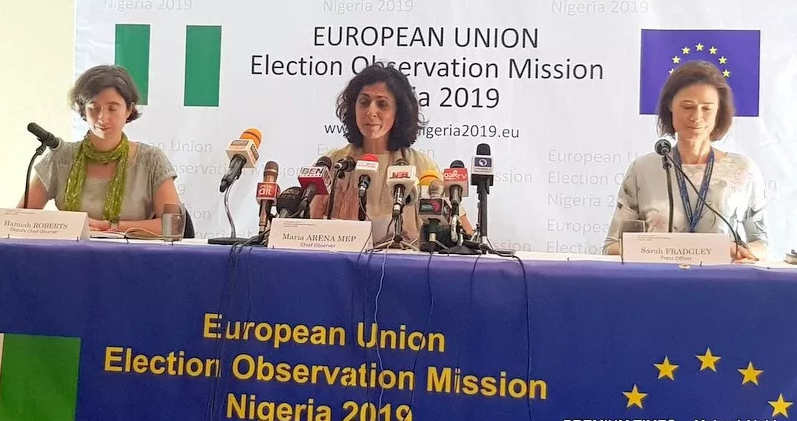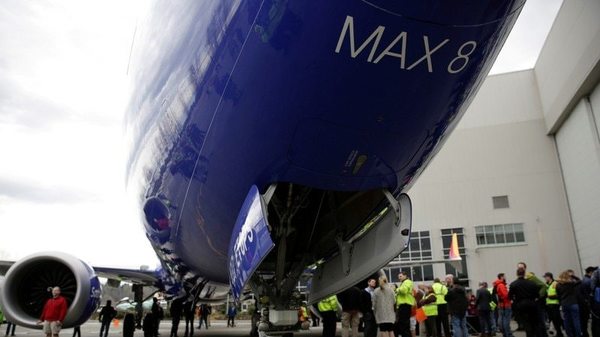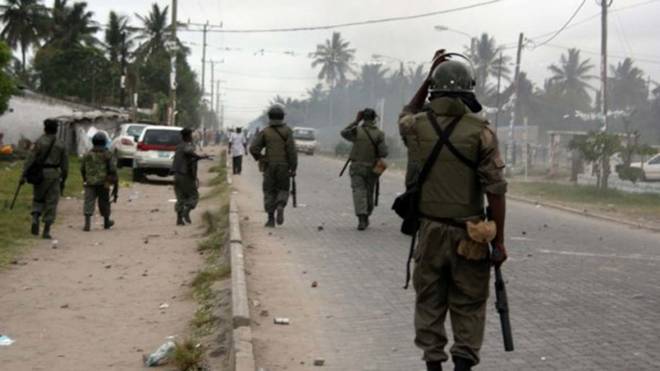The European Union Observation Mission to Nigeria (EOM) says Nigerian soldiers barred them from monitoring elections in Rivers state.
The observers made the allegation in their preliminary report released in Abuja on Monday.
While addressing journalists, Maria Arena, the chief observer, said they came to Nigeria on the invitation of the Independent National Electoral Commission (INEC) to monitor the elections and make recommendations.
She faulted the election exercise saying they were denied access to the collation centres.
Advertisement
She also decried the violence, underage voting, and vote-buying, which she claimed marred the governorship and house of assembly elections in some states.
“Observers, including EU observers, were denied access to collation centres in Rivers, apparently by military personnel,” she said.
“This lack of access for observers compromises transparency and trust in the process.
Advertisement
“In Rivers, INEC suspended, until further notice, the elections due to violence in polling units and collation centres, staff being taken hostage and election materials, including results sheets, seized or destroyed by unauthorised persons.
“There is no doubt that the electoral process there was severely compromised.”
She noted that the EU deployed 73 observers to monitor voting, counting and the collation of results in 22 states.
The chief observer said they monitored 223 polling units across 81 collation centres.
Advertisement
“Most polling units visited opened on time or less than 30 minutes late, and the procedures for the accreditation of voters were significantly improved,” EOM added.
“The counting of ballots was overall transparent. Positively, in almost all cases, party agents received copies of the results forms. The EU EOM also presented its assessment of the collation process for the presidential and National Assembly results.
“It concluded that inconsistent numbers, lack of clear checks and explanations, and insufficient public information undermined confidence in the integrity of process”.
Advertisement






